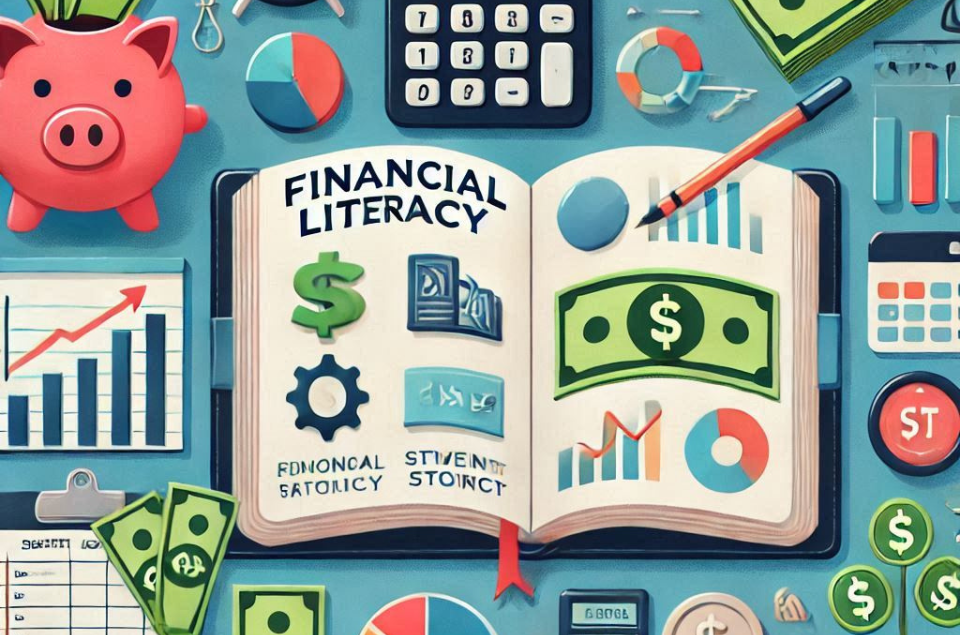
Financial Literacy Topics for Indians: A Complete Guide
In today’s fast-moving world, understanding financial literacy is very important, especially for Indians aged 22 to 50. With digital banking, new investment options, and the need to manage money wisely, being financially literate can improve your life. This blog will explain key financial literacy topics to help you make smart financial decisions.
What is Financial Literacy?
Financial literacy means knowing how to manage money well. This includes skills like budgeting, saving, investing, and understanding loans and credit. In India, being financially literate is very important because it helps people make smart money choices and avoid problems like debt and scams. Learning about these financial literacy topics can keep you safe and secure with your money.
Importance of Financial Literacy in India
- Empowerment: Financial literacy gives people the skills they need to manage their money well.
- Economic Growth: When more people understand money, it helps the economy grow and stay stable.
- Debt Management: Knowing how to handle debt can stop people from getting into money problems.
- Investment Knowledge: Learning about different ways to invest can help people build their wealth over time.
Key Topics in Financial Literacy
1. Budgeting
- What is Budgeting?: Budgeting is making a plan for how to spend your money.
- Why is it Important?: It helps you keep track of how much money you earn and spend, so you don’t run out of money.
2. Saving
- Types of Savings Accounts: There are different kinds of savings accounts, like regular savings accounts and fixed deposits, where you can keep your money safe.
- Emergency Fund: It’s important to have some money saved for emergencies, like if something unexpected happens and you need extra cash.
3. Investing
- Basics of Investing: Investing means putting your money into things like stocks, bonds, mutual funds, or real estate to help it grow.
- Risk vs. Reward: When you invest, it’s important to understand that some investments can be risky, but they might also give you bigger rewards. You need to think about how much risk you’re willing to take for the chance to earn more money.
4. Loans and Credit
- Types of Loans: There are different kinds of loans, like personal loans for buying things, home loans for buying a house, and education loans for paying for school. It’s important to understand the rules for each type.
- Credit Scores: A credit score is a number that shows how good you are at paying back money you borrow. Keeping a good credit score is important because it helps you get loans in the future when you need them.
5. Insurance
- Types of Insurance: There are different kinds of insurance, like health insurance to help pay for doctor visits, life insurance to support your family if something happens to you, and property insurance to protect your belongings.
- Why Insurance Matters: Insurance is important because it helps protect you and your family from unexpected events, like accidents or emergencies, so you don’t have to worry about big costs.
6. Digital Banking
- Understanding Digital Banking: Digital banking means doing your banking online, like checking your balance or transferring money using a computer or smartphone. It’s convenient and saves time.
- Safety Measures: To keep your money safe when banking online, always use strong passwords, don’t share your information, and make sure you’re on a secure website. This helps you avoid scams and keep your money safe.
7. Fraud Awareness
- Common Scams: There are many scams to watch out for, like phishing scams, where someone tries to trick you into giving your personal information, and Ponzi schemes, which promise big returns but are actually just taking money from new investors to pay old ones.
- Preventive Measures: If you think you’ve been scammed or someone is stealing your identity, tell an adult right away. You should also change your passwords and check your bank statements for any strange activity. This helps protect you from losing money.
Initiatives Promoting Financial Literacy in India
The Indian government and various organizations are working hard to improve financial literacy for everyone.
- National Centre for Financial Education (NCFE): This center was set up with help from important financial groups like RBI and SEBI. They offer workshops and campaigns to teach people about money.
- Financial Literacy Week by RBI: Every year, RBI holds a special week to teach people about important money topics through seminars and public events.
- Financial Literacy Centres (FLCs): There are over 1,500 of these centers across India that provide free education on managing debt and saving money, especially in rural areas.
Challenges in Achieving Financial Literacy
Even with these efforts, there are still some challenges to financial literacy in India:
- Cultural Barriers: In many families, talking about money is not common, making it hard to learn about finances.
- Digital Divide: In rural areas, not everyone has access to the internet or digital tools, which makes it difficult for them to learn about money.
- Lack of Structured Education: Many schools do not teach financial education, so kids miss out on learning important money skills.
Conclusion
Financial literacy is an important skill everyone should have. By learning about budgeting, saving, investing, and managing credit, people in India can make smart choices with their money. With many programs helping to teach financial education, there is hope for a future where more people understand how to handle their finances better.
